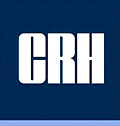A building materials group. The company holds 25% of the shares of holding company Mashav Initiating and Development. Mashav is the sole owner of Nesher Israel Cement Enterprises.
On January 8, 2016, CRH reported the sale of its stake in Israeli cement firm Mashav Initiating and Development, after a concerted international activist campaign. The Irish firm has ended its financial complicity with violations of International Law and Human Rights in the Occupied Palestinian Territories. See more information below.
A multinational manufacturer and distributor of building materials and an operator of DIY stores. CRH is incorporated in Ireland where it ranks as the second largest Irish company.
The company holds 25% of the shares of Mashav Initiating and Development, a holding company, which is the sole owner of Nesher Israel Cement Enterprises. Nesher holds a monopoly over the Israeli and Palestinian cement markets and provided cement for the construction of West Bank settlements and Israeli infrastructure in in the occupied Palestinian territory. Since Nesher sells more than 85% of all cement in Israel, it is safe to assume that the Separation Wall and the checkpoints in the West Bank were all built using cement purchased from the company.
Following calls from Amnesty International to clarify the company's involvement in the construction of the Separation Wall, CRH management admitted in 2004 that "in all probability" Nesher cement is being used in the construction of the wall.
Products of Nesher were seen in construction sites in West Bank settlements of Alfei Menashe, Kedumim and Ma'ale Adumim and in the Har Homa settlement neighborhood in occupied East Jerusalem. Nesher cement bags were also documented during the construction of the Jerusalem light rail, a transportation project that connects the settlement neighborhoods of East Jerusalem with the city center.
Nesher has a monopoly on the Palestinian cement market. According to a publication by Nesher (2014): “Revenues from the Palestinian Authority, which is the largest customer of the company, are historically 20% of total revenues”. Through an agreement with the Palestinian Authority and its fully owned Palestinian Commercial Services Company (PCSC), the West Bank and the Gaza strip constitute a captive market for Nesher's cement. Under the framework of the UN-sponsored agreement for the reconstruction of Gaza, Nesher also gained profit from the aid funds invested in the rebuilding of the Strip.
Through Nesher, CRH also holds a 12.5% share in Taavura Holdings, the largest road haulage and logistics company in the Israeli market.
Taavura provided heavy haulage and installation engineering services to the Israeli authorities during the construction of the Separation Wall. Company cranes were documented installing concrete slabs as part of the wall apparatus near the Palestinian town of Abu Dis and in the Shuafat refugee camp in occupied East Jerusalem. Taavura also participated in the construction of two bridges in the West Bank, one above Road 1 near the settlement industrial zone of Mishor Adumim and the other as part of Road 20/4 above Road 433.
Taavura also transports extremely heavy cargo for the Israel army. The company transported aircrafts and watercrafts. During the attack on Gaza in November 2012 (also known as Pillar of Defense operation), the company transported tanks to the front lines.
In January 2016 CRH announced that it would sell its stake in Mashav, Nesher's holding company, thereby exiting from any business in Israel/Palestine.
- Students at UC Los Angeles passed a resolution to divest from CRH in November 2014, citing CRH’s “contribut[ion] to the construction of military checkpoints, the Separation Wall, and illegal settlements within the occupied Palestinian territory.”
- UC Riverside voted to divest from CRH in 2014, stating that the company “has contributed to the construction of military checkpoints, the Separation Wall, and settlements within the occupied Palestinian territory.”
- UC Berkeley, in April 2013, passed a resolution asserting that CRH contributed to Israel’s illegal occupation through its “earth-moving and heavy construction equipment used in illegal settlement and Separation Wall construction..and settlement infrastructure” in its successful resolution.
- In November of 2012, UC Irvine voted unanimously to divest from CRH, stating that the company “supplied building materials used to build illegal settlements, the Wall, and checkpoints.”

